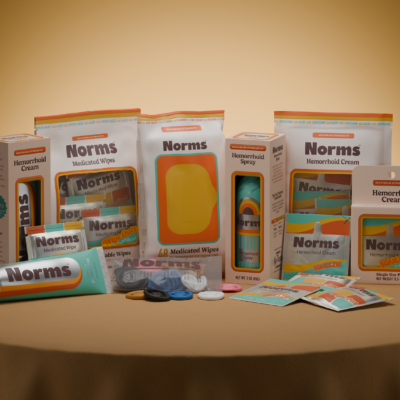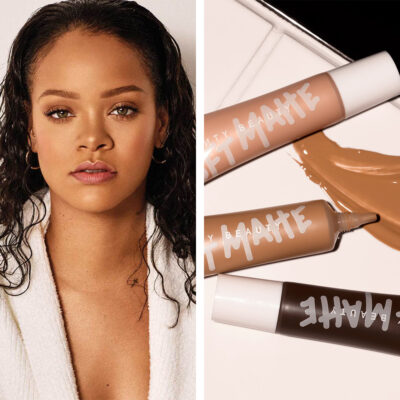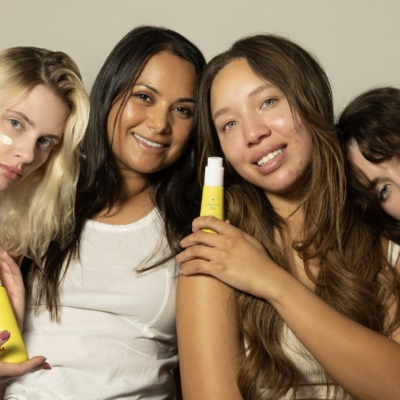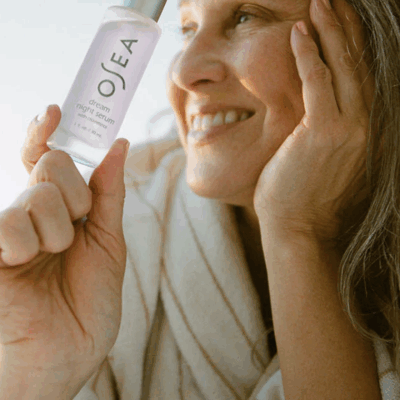
How Indie Beauty Brands Urge Good Reviews And Respond To Bad Ones
In this edition of Beauty Independent’s ongoing series posing questions to beauty entrepreneurs, we ask 12 founders and executives: How do you credibly encourage positive reviews and address negative ones?
- MICHELLE VIDAL Founder, Alkaglam
We decided to start using a shopify app called Yotpo to encourage our customers to review us after they received their product. We give them a 25% off code for filling out the survey. We want to make sure the customer is heard, and we try to help with any customer that might have an issue.
- Natasha Jay Founder, Pump Haircare
Net Promoter Score (NPS) is a loyalty metric developed at Harvard and adopted by two-thirds of Fortune 1000 companies. NPS is calculated from the response to one simple question, "How likely are you to recommend us to a friend and why?"
Every Pump customer is asked this question by an independent survey institution 21 days after ordering. We use the resulting NPS score and feedback to continuously improve our products and service. Our NPS is currently 51, a great score for the beauty industry.
While we get very few, every business will get some negative reviews. Potential customers accept that as a reality. We’re thrilled with our reviews and hope that people will look at them on the site, and on third-party sites like Trust Pilot and Product Review.
- EVELYNE NYAIRO Founder, Ellie Bianca
We receive feedback from customers that have used our products regularly and always encourage our them to write their experience on Google reviews. We comment on the reviews across all our public accounts. When customers purchase directly from us, we include a beautiful card and invite customers to write a review of their experience and, in return, we send them a promo code for a discount on their next order. This is totally optional and creates more social engagement online.
The best response to feedback is keeping it authentic, professional and responding in a timely manner. We address any feedback as a learning opportunity and are open to what matters to our customers. Our approach to negative feedback is to understand the customers' point of view and offer a solution, exchange or money back. A negative customer experience is rare, but we have managed to settle with happy customers.
- Kathy Chou Founder and CEO, Selfkaire
I believe reviews are always generated by those on extremes: either the product very positively or very negatively impacted their life or demeanor, even for a split second. The approach to both is the same: increase personal interaction and user education.
You want to make sure your customer base knows you care and also knows how to use your product as well as you do. No minds process information the same, so it's impossible to catch every train of thought on an instruction manual. Hence, we have three versions of manuals and tutorials available.
I personally reach out to those who are using our products, which encourages positive reviews, and also to those who have left negative or lukewarm comments to see if there's anything I can do to improve their user experience.
- Tamara Mayne Owner, Brooklyn Candle Studio
We will offer our most loyal customers incentive ($20 discount code, etc.) to write a review, whether positive or negative. They usually end up being positive. To address any negative reviews, I'll usually write a reply apologizing that they weren't satisfied with the product and offer an explanation for the issue they had in the most professional way possible.
- Yin Yin Wu Co-Founder and CEO, Botany Skincare
Our strategy to encourage positive online reviews is based on ensuring constant communication with our customers throughout their purchasing experience. We do this with personalized emails. For example, we send a follow-up email to ask if they have any questions about the products after the package is delivered. In this case, if a customer has any question, we can address it right away.
The email strategy we have developed is to ensure that their experience with our products is not clouded by external factors like customer service and, at the same time, let them know how much their review will help us grow as a company.
Although we have not yet received negative reviews, we do have a process in place to deal with them. If a negative review comes up, we will immediately contact the customer to address the issue. It’s important to keep the customer happy even if they left a negative review.
One time a customer sent an email over with a picture showing the damaged package due to rough handling by the shipping carrier. We issued a full refund soon after. The customer understood and reordered the items.
- David Simnick CEO and Co-Founder, Soapbox
When someone places an order or, if we send samples, we always send a follow-up email a week or so after they have received their products asking for them to please submit a review. Of course, we always want positive reviews, but even the critical ones are valuable because they help us address weak points that maybe we didn't realize we had.
We also respond to negative reviews and work on solutions on how to make their experience better. Oftentimes, taking a personal approach to these customers changes their outlook, and they submit updated reviews that are more positive than their original negative review.
Encouraging positive reviews is always about taking the extra time to establish a human and personal connection with your customers. That often results in them taking the extra time to review and leave a positive comment.
- DANUTA DUDEK Founder, Cotarde
The most important thing is to explain the reason for Cotarde’s existence and what we do exactly. Once people understand these two, they see the difference between us and the other brands. Sometimes, of course, it happens that someone is not 100% pleased with the experience. There is always someone whose skin might react to a particular active, etc. We try to dig into it, but without judging.
We offer a hassle-free policy when it comes to returns and, basically, it’s the same with reviews. It very seldom it happens, but, if it does, we accept the criticism and try to build on it so that those who are criticizing also feel like part of our brand building.
- Jenny Stackle Founder, Kip’s
Every time I mail out an order, I write a personal note and give my contact information. I also make sure to respond very quickly—within a few hours, but 12 at most—to any comments or questions on social media. Because I sell a product marketed toward people with food allergies, I want to make sure that I’m very accessible to people with questions about ingredients or manufacturing. That’s what I expect from food brands as a food allergy mom myself.
My goal is to have excellent customer service, and the feedback I’ve gotten shows me that I am achieving that goal. I haven’t yet gotten any negative reviews online, but, when I do, I plan to reach out directly to ask exactly what the problem or dissatisfaction was, how I can make it right or why they don’t like my product. I truly want to know why someone would be dissatisfied with my products. This feedback can only help in fine-tuning the products or the marketing.
- Alyssa Tucker Founder, Hydro Kitty
I encourage feedback from the very beginning with a welcoming email after their first purchase where I ask for a helpful review of their product once they've spent time with it. I like to think this attributes to well-thought-out reviews and, when a product doesn't work out for them, they don't bash it.
As a boutique owner, I am not offended when someone doesn't like a product, I just try to encourage the reviews to be helpful and valuable to other shoppers. I welcome customers to email me directly with any concerns so I can resolve their issue before it has the chance to become a negative review.
- Emma Peters Founder, Aleph Beauty
We send out a personal email to all of our customers asking them to leave a review either on our product pages or a Google review. Customers are genuinely pleased with their purchases, and the products speak for themselves, so that helps. When we do receive a less than favorable review, I’ll personally contact the customer to discuss the issue to see if we can solve their concern and, 90% of the time, we do.
- Helen Reavey Founder, Act+Acre
To achieve awareness as a direct-to-consumer brand, we need to meet and interact with our consumer at their most porous (excuse the pun). The DTC business model not just affords you that, it demands it for success. High fashion is about proclamation, whereas beauty is about conversation.
We always want to ensure that the consumer felt like they were able to have a voice, positive or negative. For this very reason, we just started what will be a series of phone conversations with me, the founder. We want to encourage everyone that had any issues or needed any hair advice to book one of our 15-minute slots. At the end of the call, we would ask if they would leave a review, but only after using the product for a few weeks.
We also use the same approach with negative reviews. We set up a time with the consumer to ensure they are using the product right and any other concerns that they might have. 99% of the time, we found that the consumer wasn't happy because they didn't know how to use the product correctly and, once they received the advice, we found that negative reviews turned into positive ones.
If you have a question you’d like Beauty Independent to ask beauty entrepreneurs, please send it to editor@beautyindependent.com.





